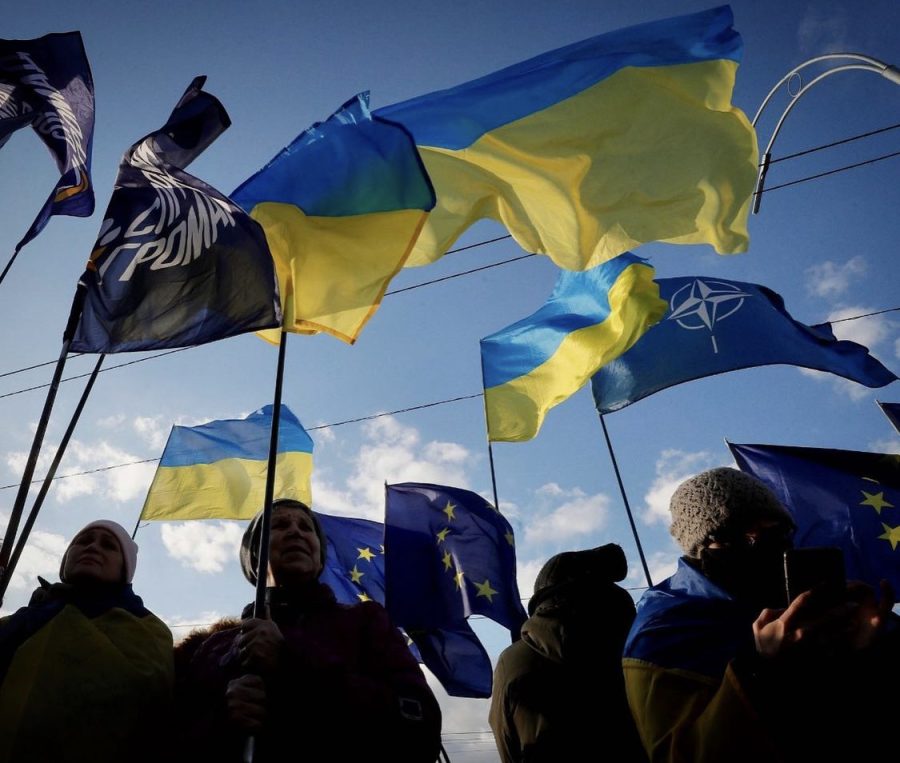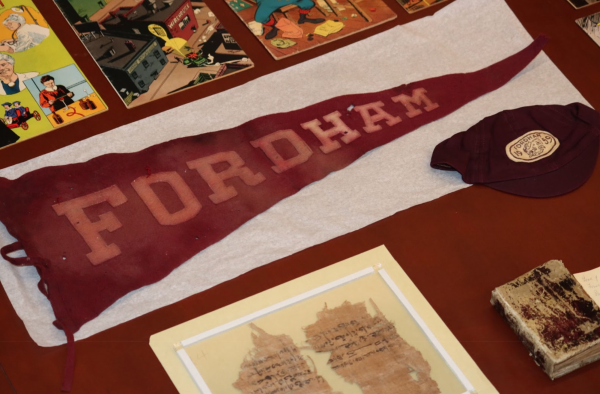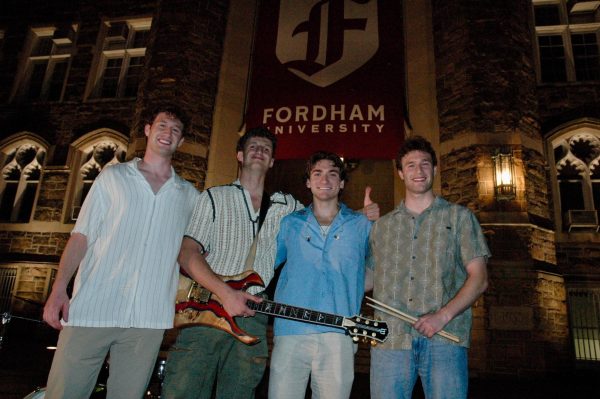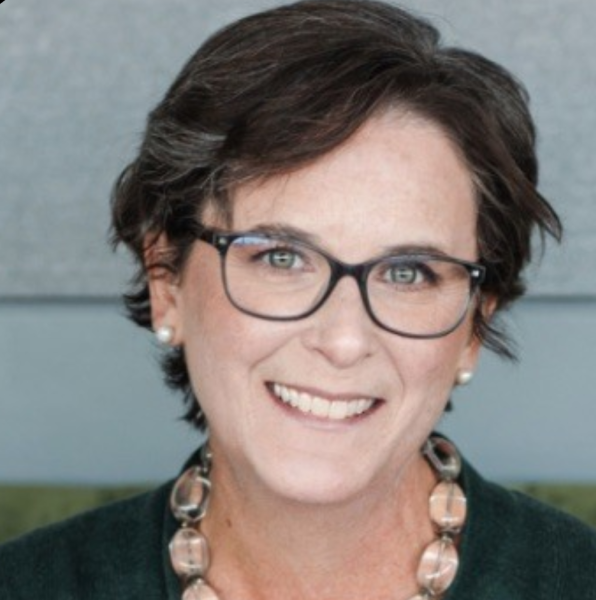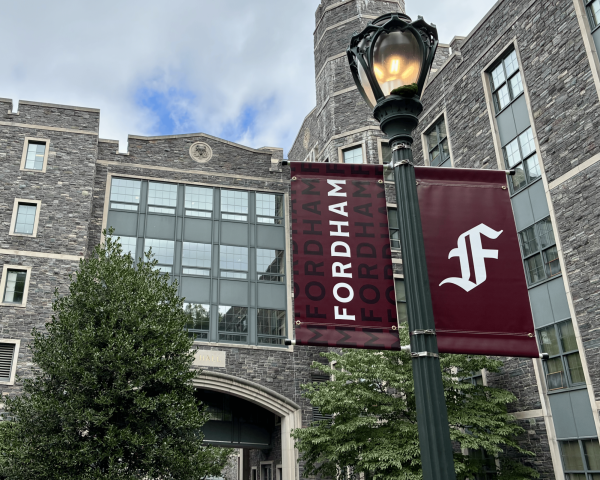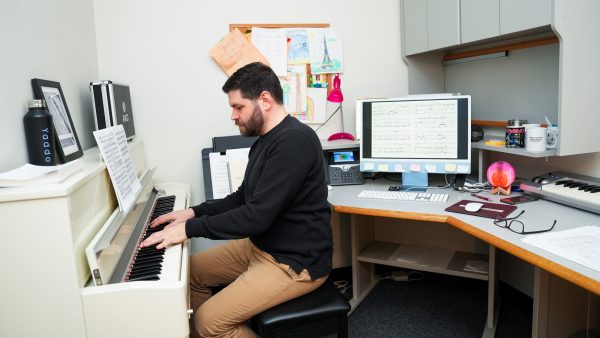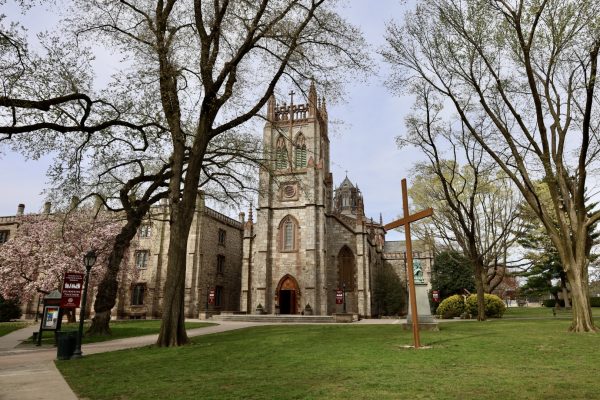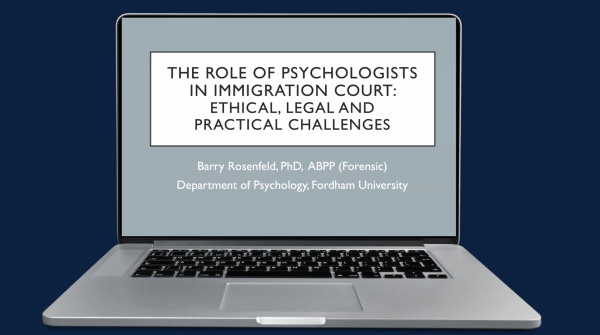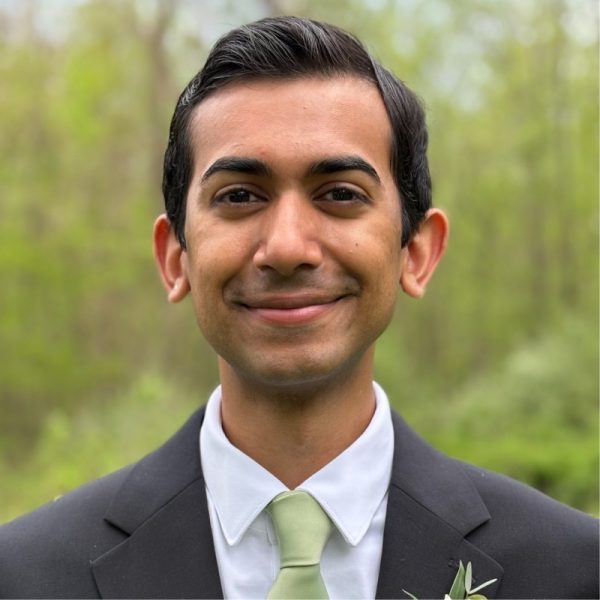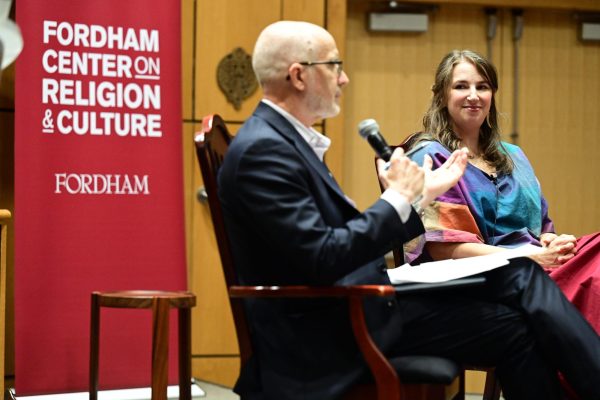Russian-Ukraine Conflict Escalates
The Russo-Ukrainian War is a series of tensions with an extensive history dating back to the dissolution of the Soviet Union. As the atmosphere thickens in Eastern Europe, particularly on the eastern Ukrainian border, all eyes are on the Russian, Ukrainian and Western governments to see how this global conflict will evolve. While some theorists are calling this geopolitical standoff the next Cold War, others surmise that Western hegemony will prevail against the Kremlin.
Olena Nikolayenko, Ph.D., is the chair of Fordham’s political science department and a Ukraine native. Having moved to the United States to pursue her graduate education, Nikolayenko speaks fondly of her home country. “Ukraine is the largest country entirely within Europe. Slightly smaller than Texas, with a population of 41 million people,” she explained. She is firm in breaking down the issue, stating that “the Russian government refuses to accept the fact that Ukraine is an independent country, with its own culture, history and language” ever since the “collapse of communism and the dissolution of the Soviet Union.”
The cause for greater concern is how aware Americans are of what is happening in the east. College students in particular seem to be somewhat ignorant of international relations and potential turmoil. Christopher Toulouse, Ph.D., a professor in Fordham’s international studies program, states that “we are still under the COVID-19 cloud” and “generally, students don’t like to think about the amount of damage COVID-19 has done to us.” Focusing on the Russo-Ukrainian War in his “Democracy, Terrorism and Modern Life” course, Toulouse finds it unsurprising that students “are trying to ignore the outbreak of another war.”
Regardless of students’ reactions towards it, the conflict is still tremendously relevant and significant. The Soviet Union was a socialist Marxist-Leninist state composed of 15 republics, including Ukraine, Belarus, Lithuania and Latvia. Russia was crippled by the fall of its Soviet Union in 1991, and many upper-level Russian officials, including former Russian intelligence agency KGB officers, have felt a need to reestablish Soviet supremacy over the Eastern Bloc and the Western world.
While history between Russia and Ukraine is far too complicated to summarize at once, their most recent frustrations have been provoked by the North Atlantic Treaty Organization’s (NATO) desire to recruit Ukraine into their ranks.NATO is an intergovernmental military alliance where the members agree to a mutual defense pact should there be an attack by an external party.
In 2014, NATO “suspended” the Russian Federation’s participation in the treaty following their annexation of Crimea, a contested territory between Ukraine and Russia. NATO called the annexation “illegitimate” and affirmed that Russia’s continued aggression towards Ukraine is not in compliance with international law.
Ukraine and NATO have had a long-standing amiable relationship since the establishment of Ukrainian independence, but it wasn’t until 2017 that Ukraine adopted legislation with the objective of NATO membership. In 2015, President Volodymyr Zelenskyy pushed Ukraine’s new National Security Strategy, which lays the groundwork for a “distinctive partnership” with, and membership in, NATO. Russia, however, is terrified of Ukraine joining NATO, and rightly so. Russian aggression has targeted internationally-recognized Ukrainian territories of Crimea and Donbas; if Ukraine was to join NATO, the organization would prepare an onslaught against the Federation in defense of its member. Joining NATO would also give Ukraine more legitimacy as an independent country, which, although generally accepted in the West, remains contested amongst many Russians who seek to restore Ukraine as a part of Russia.
Russia believes its claims on Ukrainian territory are legitimate because they are Russophone regions (i.e. regions with majority Russian speakers), despite being within the borders of Ukraine. Since 2014, Crimea has acted as a part of the Russian Federation through “self-determination,” which Ukraine and international organizations call an illegal occupation.
On the topic of Russo-Ukrainian relations, Nikolayenko quoted Zbigniew Brzezinski, Polish American diplomat and Jimmy Carter’s national security advisor, who stated that “without Ukraine, Russia ceases to be an empire, but with Ukraine suborned and then subordinated, Russia automatically becomes an empire.”
Russia’s power is determined by the status of Ukraine and its rising independence poses an immediate threat to the political strength of Russia. With over 190,000 troops on Ukraine’s eastern border of Donbas, “the biggest mobilization since the Second World War,” seems to be imminent as the Ukrainian government refuses to concede to Vladimir Putin, president of Russia, and his military forces.
Nikolayenko says these tensions “reveal the fragility of the world order,” while Toulouse agrees that “it could be a big enough war to scar Europe.”
Whatever happens, Russia is unlikely to be satisfied and may set its sights on Western powers, such as the United States and the United Kingdom, who stand in their way.
Alternatively, Putin may attempt to conquest other former Soviet republics, a majority of which Russia shares a border with. By destabilizing Eastern Europe, Putin will be able to establish Soviet hegemony and threaten the sanctity of many international organizations and Western countries, likely forcing them to bend to his will as he conquers the east.
This opens a floodgate of possibilities for countries such as the United States, who will likely receive a massive influx of Ukrainian and Russian refugees should the two countries go head to head.
Without NATO membership, Ukraine will have to rely on its preexisting alliances and good will of the west if they want a chance at defeating Russia. Toulouse concurs, comparing the potential emigration as “consistent with abandoning Afghanistan to the Taliban.” The problem is, as Nikolayenko points out, that Russia is “very savvy at fomenting divisions among Western allies,” which was seen during the Trump administration and America’s friendliness towards Russia. Regardless of what happens, it is surely something to watch. What moves Russia and Ukraine make next will undoubtedly frame the next decade in Europe — if not the world — and show the real power of the Russian Federation.
Remaining knowledgeable, especially as a student in a global capital, is of utmost importance.

Samantha “Sam” Minear is a senior from Long Branch, N. J., majoring in international studies and communications. She started as a contributing writer...





































































































































































































